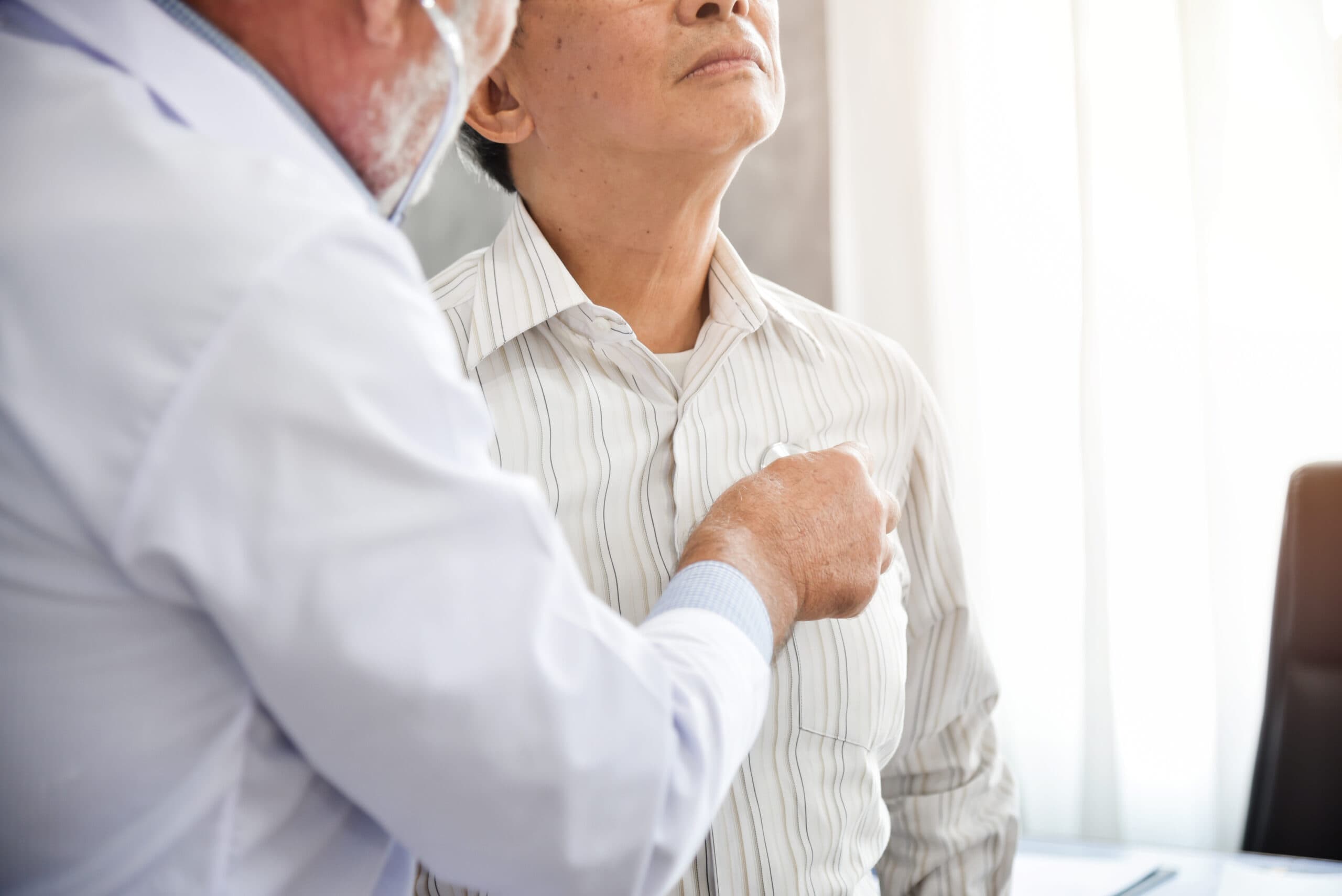October 27, 2025
Managing Pneumonia Risk in Seniors: Prevention, Treatment and Recovery
Pneumonia is an infection in the tiny air sacs in your lungs. If you’re 65 or older, you may be at an increased risk of contracting pneumonia due to physiological changes and environmental exposure. Your immune system changes with age, making it more difficult to fight infections and illness. Chronic health conditions like heart disease or COPD can exacerbate respiratory symptoms and affect your recovery. That’s why it’s crucial to take preventative measures to protect your health.

What Causes Pneumonia?
It’s typically spread through droplets from coughing and sneezing. Once the germs enter your lungs, they trigger an immune response that causes the air sacs in your lungs to accumulate fluid, making it difficult to breathe.
There are three types of pneumonia:
Bacterial pneumonia: Spread through contact with airborne droplets or contaminated surfaces, bacterial pneumonia is usually transferred from one person to another.
Viral pneumonia: This type of pneumonia can develop from other viruses that cause the flu, COVID-19 and respiratory syncytial virus.
Fungal pneumonia: Spores released from soil, organic matter and bird droppings cause fungal pneumonia. It is the only type that doesn’t spread from person to person.
H3: Symptoms of Pneumonia in Seniors
Common pneumonia symptoms include:
- Chest pain
- Cough with or without phlegm
- Fever
- Chills
- Shortness of breath
- Muscle aches
- Fatigue
- Nausea or vomiting
- Low blood oxygen
The following signs of pneumonia are specific to seniors:
- Confusion, disorientation or delirium
- Rib pain or fracture
- Low body temperature
- Urinary incontinence
- Changes in functional abilities
- Worsening of chronic conditions
Tips to Prevent Pneumonia in Seniors
Wash your hands regularly: Use soap and warm water to scrub your hands to prevent the spread of bacteria. That’s essential if you’ve been in a public place, spent time in a hospital or were exposed to sick individuals. Use hand sanitizer with at least 60% alcohol if you don’t have access to soap.
Strengthen your immune system: Supporting your immunity helps your body fight infections. Give yours a boost by eating a diet rich with vitamins, minerals and antioxidants and staying active to enhance your lung capacity. Drink plenty of water to thin the mucus in your respiratory system.
Get vaccinated: There are different vaccines to protect against pneumonia and other respiratory illnesses.
Schedule regular checkups: Annual physical exams enable your doctor to monitor your lung health and detect symptoms early, such as persistent coughing and shortness of breath.
Avoid sick individuals: Distancing yourself from sick people reduces your chance of exposure to respiratory droplets.
Eliminate nicotine: Smoking damages your lungs, making you more susceptible to contracting pneumonia. Ask your healthcare provider about smoking cessation medication and products.
How is Pneumonia Diagnosed?
Your primary care physician will evaluate your symptoms and review your medical history and underlying conditions. They’ll also take your vital signs, such as your heart rate and blood oxygen level, and listen for crackling in your lungs with a stethoscope.
Depending on the severity of your symptoms and risk of complications, your doctor may prescribe additional evaluations, including:
- Blood tests
- CT scans or X-rays
- Fluid cultures
- Pulse oximetry
Pneumonia Treatment Options for Seniors
Antibiotic, antiviral and antifungal medications are available in pills and IV fluids to treat each type of pneumonia. You can also use over-the-counter drugs like acetaminophen and ibuprofen to manage aches and fever. If you’re hospitalized, you may receive oxygen therapy and breathing treatments to ease respiration, while severe cases could require ventilator care. Your doctor might give you a device called a spirometer to help you take deep breaths and open your airways. Recovery time varies from a few weeks to months, depending on your health and the severity of your illness. Seeking medical intervention as soon as possible can reduce your risk of adverse outcomes and support effective rehabilitation.
Our Commitment to Senior Health
Working with a dedicated team to manage your pneumonia can help you get back to living well. Embassy Healthcare employs professionals who are committed to providing you with the personal assistance you need based on your goals and medical requirements. In addition to our comprehensive pulmonary services, we also provide care coordination to support clinical consistency. Contact us to learn about our locations in Ohio, Pennsylvania, Virginia, North Carolina and Florida.
